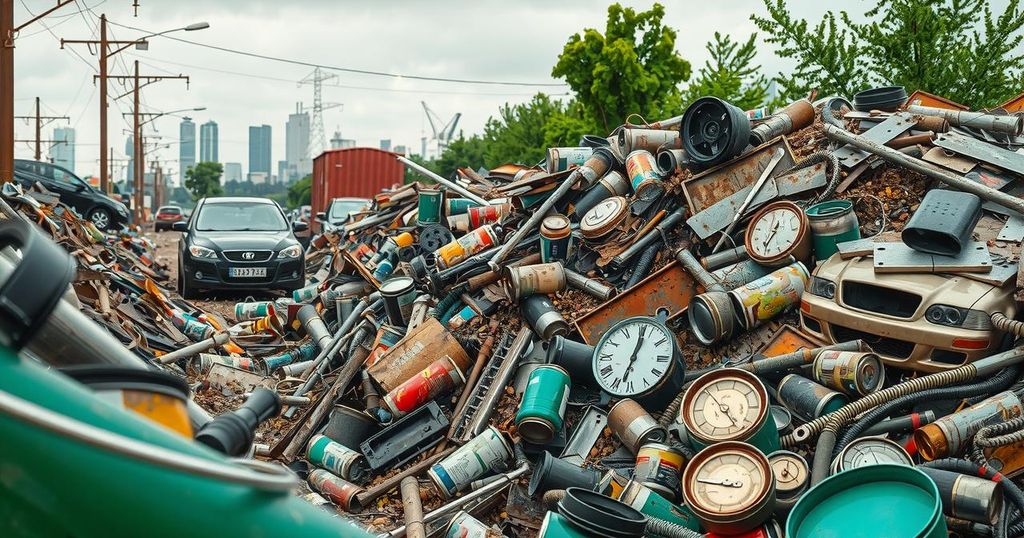Weather
ASIA, BANGKOK, DISASTER MANAGEMENT, EUROPE, FLOODING, FLOODS, GENEVA, JULIA REES, MARCO, MARCOLUIGI CORSI, MIN AUNG HLAING, MONSOON, MYANMAR, NAYPYITAW, OCHA, OFFICE FOR THE COORDINATION OF HUMANITARIAN AFFAIRS, RESCUE OPERATIONS, REUTERS, S OFFICE FOR THE COORDINATION OF HUMANITARIAN AFFAIRS, SWITZERLAND, THAILAND, U. N, UNICEF, WORLD HEALTH ORGANIZATION
Michael Grant
0 Comments
Myanmar Earthquake: Death Toll Rises Amid Ongoing Rescue Efforts and Humanitarian Crisis
A powerful earthquake in Myanmar has caused over 2,000 deaths, with projections exceeding 3,000. Despite significant challenges, some rescues continue to offer hope. The humanitarian crisis, exacerbated by civil war, poses severe risks due to shortages of water and medical supplies, raising concerns of disease outbreaks. International aid is being mobilized amid calls for unimpeded access to support victims, underscoring the urgent need to prioritize life-saving efforts.
On Tuesday, rescue teams in Myanmar managed to save a 63-year-old woman from the debris of a collapsed building as efforts continue following a devastating earthquake. This disaster has reportedly claimed over 2,000 lives and authorities now anticipate that the death toll may exceed 3,000. Continuing humanitarian crises, aggravated by ongoing civil war, complicate the response to this tragedy. General Min Aung Hlaing, the head of Myanmar’s military junta, confirmed that 441 individuals are still unaccounted for in the aftermath of the powerful 7.7 magnitude quake.
The U.N.’s Office for the Coordination of Humanitarian Affairs has cautioned that the chances of finding more survivors are decreasing rapidly. Marcoluigi Corsi, OCHA’s Humanitarian Coordinator for Myanmar, emphasized that “the time window for critical search and rescue is narrowing,” and highlighted acute shortages of essential supplies. Julia Rees, UNICEF’s deputy representative for Myanmar, echoed these sentiments, stating that “the needs are massive, and they are rising by the hour.”
The earthquake, which also affected neighboring Thailand, resulted in significant structural damage, with the World Health Organization reporting over 10,000 buildings severely impacted. In Thailand, a construction site tragedy led to 20 fatalities and 34 injuries, prompting an investigation into potential design flaws. As Myanmar paused its rescue operations to honor the deceased, remarkable rescues are still reported, including the recovery of the 63-year-old woman who had been trapped for over 90 hours.
The fire department in Mandalay confirmed 403 rescue operations so far, with the heartbreaking news that 50 Buddhist monks perished when their monastery collapsed. As foreign aid teams arrive slowly, rescue operations face challenges due to a lack of necessary equipment. Notably, a team from China saved four individuals from a collapsed apartment complex, including a young child and a pregnant woman.
International response has been substantial, with various countries pledging significant humanitarian aid. However, there is an urgent need for clean water and sanitation to prevent disease outbreaks, with UNICEF’s Rees warning that “the most immediate need is water” in the wake of the quake’s destruction.
Before the earthquake, more than three million people were already displaced due to Myanmar’s civil conflict, complicating the delivery of humanitarian aid. Despite ongoing military confrontations, the opposition National Unity Government has urged for a unilateral ceasefire and called for unimpeded access to humanitarian assistance. They warned, “We are in a race against time to save lives,” stressing the need for humanitarian efforts to be prioritized above military engagements related to the ongoing civil war.
Although General Min Aung Hlaing has expressed willingness to accept foreign assistance, past experiences raise questions about whether the military may attempt to restrict aid. Ensuring that humanitarian assistance reaches disaster victims promptly is paramount to mitigating the impacts of the earthquake and ongoing violence in Myanmar. Tom Andrews, a U.N.-appointed rights monitor, reinforced the idea that prioritizing life-saving measures should be the focus, stating: “The focus in Myanmar must be on saving lives, not taking them.”
The recent earthquake in Myanmar has tragically compounded an existing humanitarian crisis, with rising death tolls and vast destruction necessitating urgent international aid. Rescue operations continue, although challenges persist due to infrastructure damage and ongoing conflict. The situation remains dire, with an urgent need for clean water and shelter, particularly as the health risks from potential outbreaks intensify. As the international community mobilizes support, ensuring that aid reaches those in need without obstruction is vital for saving lives amid this calamity.
Original Source: www.cbsnews.com




Post Comment